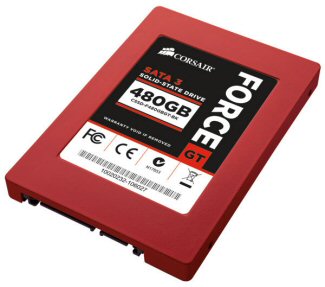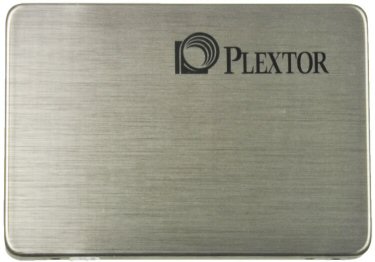- Details
- Flash Memory
 Team Group’s TL01 leather drive is a stylish, high-speed and for a new generation flash drive, which made its debut at the GITEX exhibition; it imitated the Arabian Gulf design, and used the newest double-stitched leather construction method, along with delicately made white steel side decorations and rings, cleverly combined metropolitan fashion and whimsy style.
Team Group’s TL01 leather drive is a stylish, high-speed and for a new generation flash drive, which made its debut at the GITEX exhibition; it imitated the Arabian Gulf design, and used the newest double-stitched leather construction method, along with delicately made white steel side decorations and rings, cleverly combined metropolitan fashion and whimsy style.
Team Group’s TL01 leather drive uses a rotational storage design, eliminating the risk of damage from connector collision, in addition to having a delicate and exquisite style, it also combined features such as yuppie aesthetic and leather’s wear-resistance and durability; by using the standard USB 2.0 interface, it can be widely applied to personal computers and peripheral devices. The TL01 leather drive also comes in several storage capacities ranging from 2~32GB available for consumers to purchase in order to satisfy the application needs of different users.
As a leading provider of memory storage products to the consumer market, Team Group is committed to providing the best storage, multimedia and data sharing solutions. All Team memory module products come with a lifetime warranty, repair and replacement services. For more information, please visit the Team website at www.teamgroup.com.tw.
- Details
- Flash Memory
PQI, one of the top 10 Flash memory makers in the world, has just released the U827 Santa Claus limited edition travel disk for the holiday season. The cute and humorous design combined with the classic packaging is guaranteed to turn heads and make it hard to put down. The U827 travel disk not only features COB packaging technology for water, dust, vibration and shock resistance but also delivers an unconventional twist on the traditional Santa Claus to create a different Christmas USB disk. Through careful observation and ingenuity, the cap is both a cute sled and a bathtub, making the PQI Santa Claus U827 a fun and user-friendly lifestyle accessory.

A snow-covered landscape is a familiar fairy tale setting and it is the mission of Santa Claus to satisfy the many hopes hanging up over the fireplace. While we delight in the gifts under the Christmas Tree and by the bedside, shouldn't we also prepare a nice, hot bath for Santa Claus out there in the freezing cold? PQI U827 heard Santa Claus' complaint and this became the inspiration for a design that allows Santa Claus to enjoy a nice, hot bubble bath as he travels across the world. Like riding a time machine to those innocent childhood years, each bubble represents a sincere holiday greeting and a wish for happiness. Through these bubbles of happiness, PQI U827 hopes to convey its blessings to the world!
- Details
- Flash Memory
 Memoright, a leading provider of solid state drive (SSD) products, unveils its latest SSD solutions HTM series which delivers constant sequential performance and constant random access performance and allows MLC- based SSDs to deliver longer life span for enterprise storage.
Memoright, a leading provider of solid state drive (SSD) products, unveils its latest SSD solutions HTM series which delivers constant sequential performance and constant random access performance and allows MLC- based SSDs to deliver longer life span for enterprise storage.
As Memoright’s Chairman and CEO Eric Kao stated in the keynote speech of Flash Memory Summit, “one size does not fit all in SSD world.” SSDs are not simply as a faster version of HDDs. If SSD’s performance characteristic does not match data access patterns, SSDs will not perform as expected and sometimes can be slower than HDDs.
In some application of enterprise storage, SSD’s are required to deliver consistent performance, especially when they are working in an array or certain RAID configurations. Latency is the time with which a drive takes to respond back to host after receiving an IO command. An array of SSD’s performs the best when every SSD responds with same or similar latency. This is also the reason why enterprise HDD’s are often short-stroked to limit the movement of read/write headset thus to obtain a narrower range of latency time, while sacrificing a high percentage of capacity. In SSD world, some manufactures use high over-provisioning to ease garbage collection process in hope of limiting the latency time. It not only wastes a lot of expensive NAND capacity, but also got no guarantee. Memoright shows that it is possible to limit the latency spread without a high percentage of over-provisioning.
- Details
- Flash Memory
Corsair, a worldwide designer and supplier of high-performance components to the PC gaming hardware market, today announced worldwide retail availability of the 480 GB Force Series GT SSD and 180GB and 480GB Force Series 3 SSDs.

As solid-state drives reach wider adoption rates, Corsair's new SSD models address growing market demand for fast, high-capacity drives. The 180GB Force Series 3 targets consumers and IT professionals who want an affordable step up from 120GB, and the 480GB models are ideal for high-performance notebook PC users who require massive SSD storage capacity in a single drive. The top of the line 480GB Force Series GT SSD is designed for video editing, competitive gaming, and other applications for which extraordinary performance is required.
"As one of the leaders in high-performance solid state drives, we're pleased to offer a full range of SSD models to address customers' needs for high performance, high-capacity storage.", said Thi La, Vice President of Memory Products at Corsair.
- Details
- Flash Memory
Links International announced this week that Plextor's new M2P Series SSDs will be released in Japan on October 8th. Originally unveiled at Computex 2011, the PX-128M2P and PX-256M2P are powered by a server-grade Marvell 88SS9174 controller and share many of the same features found on the M2S Series, including a SATA 6Gb/s interface, TRIM support and Plextor's own Instant Restore technology. The M2P Series even appears to use the same Toshiba 32nm Toggle Mode NAND flash chips found on the PX-128M2S and PX-256M2S.

Despite the similarities, the M2S and M2P Series are quite different. Along with a totally redesigned 2.5-inch PCB and new features like Plextor's True Speed technology, the M2P Series has gotten a considerable speed increase. The 128GB PX-128M2P comes equipped with a 256MB DDR3 cache and is capable of delivering up to 500 MB/s sequential read and 300 MB/s sequential write speeds. The PX-256M2P packs twice the cache (512MB) which helps the drive reach a sequential write speed of 440 MB/s.

